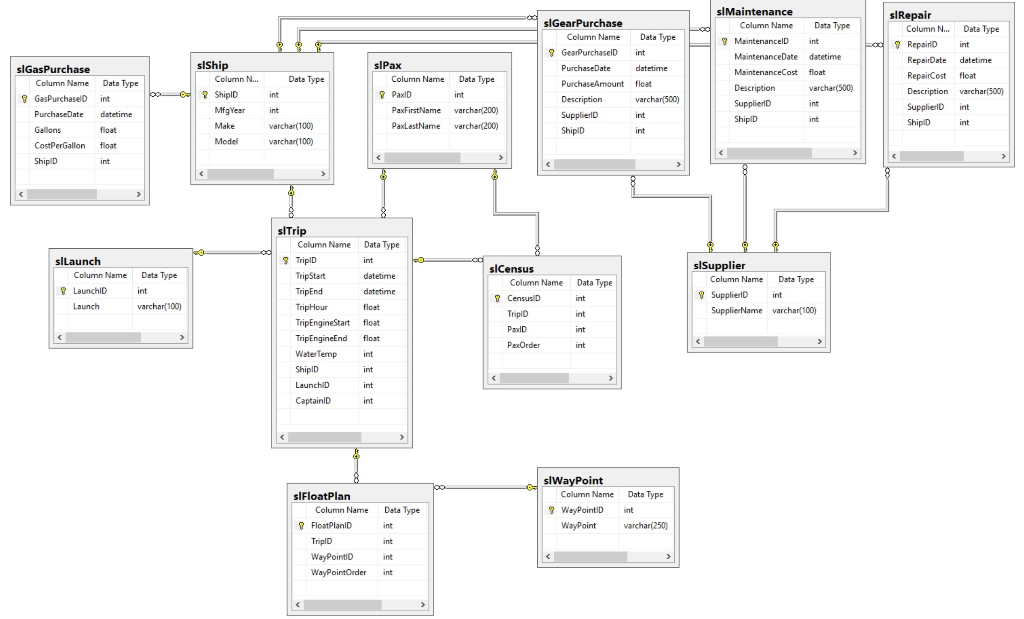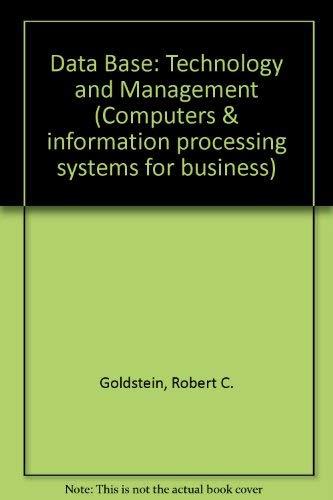Question
SQL Exercise System 1 -->Assume we want to analyze a pattern in gear purchases. Part of the pattern analysis is listing all purchases with purchase
SQL Exercise System
1-->Assume we want to analyze a pattern in gear purchases. Part of the pattern analysis is listing all purchases with purchase amounts that are a multiple of 10 where the amount is rounded to the nearest dollar amount. List slGearPurchase.GearPurchaseID, slGearPurchase.PurchaseAmount, AmountRounded, and slGearPurchase.Description where the rounded purchase amount is a multiple of 10. The attribute AmountRounded is produced using the ROUND() function. Write the WHERE clause using ROUND() IN() for rounded amounts that are equal to 10,20,30,...100. Order the list by slGearPurhcase.PurchaseAmount in ascending order.
2-->List slGearPurchase.GearPurchaseID, slGearPurchase.PurchaseAmount, slGearPurchase.Description for all gear purchases. Replace NULL values in Description with NA (Not Applicable). Order the list by slGearPurchase.GearPurchaseID in ascending order.
3-->For repairs with a rounded up repair cost greater than or equal to 10 and less than or equal to 15, list slRepair.RepairCost, CostRounded, and slRepair.SupplierID. Compute CostRounded using the ROUND() function. ROUND() must be used in the WHERE predicate to filter correctly. The previous query "cost10-15" did not include RepairCost for 9.89 and 9.99 which would round up to 10. See the hint for further information. The endpoints 10 and 15 should be included in the range. Order the list by RepairCost in ascending order
4-->Rewrite the query "Cost10-15R" using the BETWEEN operator. For repairs with a rounded up repair cost greater than or equal to 10 and less than or equal to 15, list slRepair.RepairCost, CostRounded, and slRepair.SupplierID. Compute CostRounded using the ROUND() function. ROUND() must be used in the WHERE predicate to filter correctly. Use the BETWEEN operator. Order the list by RepairCost in ascending order
5-->For repairs having supplierID 1501 OR 1517, list slRepair.RepairDate, slRepair.RepairCost, slRepair.SupplierID. Order the list first by SupplierID in ascending order and then by repair cost in descending order
SCHEMA

Step by Step Solution
There are 3 Steps involved in it
Step: 1

Get Instant Access to Expert-Tailored Solutions
See step-by-step solutions with expert insights and AI powered tools for academic success
Step: 2

Step: 3

Ace Your Homework with AI
Get the answers you need in no time with our AI-driven, step-by-step assistance
Get Started


